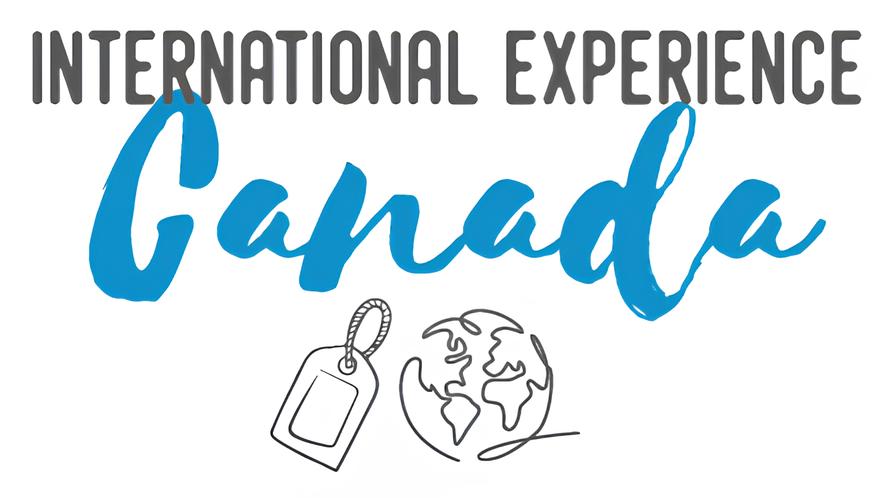International Experience Canada (IEC) is a unique initiative designed to help young travelers from participating countries experience life in Canada. By offering various work permit options, IEC allows eligible foreign nationals to immerse themselves in Canadian culture, gain professional experience, and explore the country’s stunning landscapes—all while working legally. Whether you’re interested in short-term work to fund your travels or looking to gain professional experience that enhances your career, IEC provides a flexible framework to make it happen.
What Is International Experience Canada (IEC)?
International Experience Canada (IEC) is a collection of programs established through reciprocal agreements between Canada and other nations. These agreements grant young adults the opportunity to live, work, and travel in Canada for a limited time, usually up to one year. Through IEC, applicants may obtain a Canadian work permit without requiring a Labour Market Impact Assessment (LMIA), streamlining the process and making it more accessible to young global citizens.
IEC is not a single program, but rather an umbrella of three distinct streams that cater to different travel and work preferences. However, it’s important to note that each participating country has its own set of offerings—some provide all three programs, while others limit the options available.
Understanding IEC’s Three Programs
Before applying to IEC, it’s crucial to understand that it comprises three distinct programs: Working Holiday, Young Professionals, and International Co-op Internship. Each program targets a specific type of participant and offers a unique employment arrangement. Keep in mind that not all countries offer all three programs, so it’s essential to verify which options are available based on your nationality.
Working Holiday: Ideal for those seeking flexibility and freedom, enabling participants to work for multiple employers and in various locations.
Young Professionals: A program focused on gaining professional work experience in Canada, tied to a specific employer and role.
International Co-op Internship: Tailored for students who need a Canadian internship or work placement as part of their studies.
A Reciprocal Opportunity for Canadians and Foreign Nationals
IEC functions through reciprocal bilateral agreements, meaning that just as foreign nationals can work and travel in Canada, Canadian citizens enjoy similar opportunities abroad. This reciprocal nature fosters cultural exchange, language learning, and professional development on an international scale. It’s a two-way street that benefits young people on both sides, encouraging global mobility and understanding.
Eligibility for the IEC Program
Before starting your IEC journey, you must ensure you meet the eligibility criteria. Generally, participants must be citizens of a partner country that has an IEC agreement with Canada. Additionally, you must fall within the accepted age range (often up to 35 years old, although the limit can vary by country) and satisfy any country-specific requirements.
Below is a table summarizing which countries participate in each of the IEC programs. Please note that these offerings vary, and you should verify the latest information on Immigration, Refugees and Citizenship Canada (IRCC)’s official website:
| Country | Working Holiday | Young Professionals | International Co-op Internship |
|---|---|---|---|
| Andorra | Yes | No | No |
| Australia | Yes | Yes | Yes |
| Austria | Yes | Yes | Yes |
| Belgium | Yes | No | No |
| Chile | Yes | Yes | Yes |
| Costa Rica | Yes | Yes | Yes |
| Croatia | Yes | Yes | Yes |
| Czech Republic | Yes | Yes | Yes |
| Denmark | Yes | No | No |
| Estonia | Yes | Yes | Yes |
| France | Yes | Yes | Yes |
| Germany | Yes | Yes | Yes |
| Greece | Yes | Yes | Yes |
| Hong Kong | Yes | No | No |
| Ireland | Yes | Yes | Yes |
| Italy | Yes | No | No |
| Japan | Yes | No | No |
| Korea, Rep. | Yes | No | No |
| Latvia | Yes | Yes | Yes |
| Lithuania | Yes | Yes | Yes |
| Luxembourg | Yes | Yes | Yes |
| Mexico | Yes | Yes | Yes |
| Netherlands | Yes | Yes | No |
| New Zealand | Yes | No | No |
| Norway | Yes | Yes | Yes |
| Poland | Yes | Yes | Yes |
| Portugal | Yes | Yes | Yes |
| San Marino | Yes | No | No |
| Slovakia | Yes | Yes | Yes |
| Slovenia | Yes | Yes | Yes |
| Spain | Yes | Yes | Yes |
| Sweden | Yes | Yes | Yes |
| Switzerland | No | Yes | Yes |
| Taiwan | Yes | Yes | Yes |
| Ukraine | Yes | Yes | Yes |
| United Kingdom | Yes | No | No |
If your country is not listed, there may still be options to participate through a Recognized Organization. It’s worth exploring all available avenues, as IEC rules evolve and differ from one nationality to another.
Working Holiday Visa: Freedom and Flexibility
The Working Holiday visa is perfect for those looking to travel and work in Canada without being tied to a single employer. This stream provides an open work permit, allowing participants to switch jobs and locations at their leisure. It’s especially popular among travelers who want to explore Canada’s diverse regions, earn money to fund their adventures, and gain international work experience—often without requiring a pre-arranged job offer.
Applicants interested in the Working Holiday program should keep in mind that it is competitive, and quotas vary by country. The relatively relaxed criteria make it a sought-after option, so verifying your country’s quota and timeline can help you gauge your chances of success.
Young Professionals: Building Career Foundations
The Young Professionals program focuses on helping participants gain career-relevant Canadian work experience. This option requires applicants to have a valid job offer in Canada that aligns with their professional development. Successful candidates receive an employer-specific work permit, meaning they must work for the same employer at the stated location throughout their stay.
This program suits individuals who have clear career goals and want to enhance their resumes with international experience. Positions generally need to fall under the National Occupational Classification (NOC) Skill Level 0, A, or B to be considered suitable for professional development. As with the other IEC streams, quotas differ by country, so it’s important to review the details for your nationality.
International Co-op: Hands-On Learning for Students
The International Co-op Internship program caters to post-secondary students who need a Canadian internship or work placement as part of their educational requirements. Applicants must have a job offer linked to their field of study and be ready to complete the work placement in Canada. This stream also issues employer-specific work permits, requiring participants to remain with the same employer for the duration of their program.
For students seeking international exposure and practical experience, the International Co-op program provides a chance to immerse themselves in Canada’s professional environment. Verifying quotas, eligibility criteria, and application procedures specific to your home country is essential for success.
IEC Application Procedure: Five Key Steps
Applying for IEC involves a structured, step-by-step process designed to ensure fairness and transparency. While exact requirements may vary, the general framework remains consistent across participating countries:
Step One: Create an IEC Profile
Begin by determining which IEC program fits your goals and verify that your country participates. Then, create an account on the IEC website. If you meet the basic eligibility criteria, your profile will be entered into the candidate pool.
Step Two: Receive an Invitation to Apply
IEC regularly conducts random draws from the candidate pool. If selected, you will receive an Invitation to Apply (ITA), allowing you to proceed. The likelihood of selection depends on the quotas set for each program and country.
Step Three: Accept the Invitation to Apply
Once you have an ITA, you have a limited time (usually 10 days) to accept it. After accepting, you typically have 20 days to submit a complete work permit application online. If you decline, you will return to the candidate pool and may be considered in future draws.
Step Four: Submit Your Work Permit Application
After accepting the ITA, submit your work permit application through IRCC’s online portal within the given timeframe. Prepare in advance by gathering all required documents, such as proof of eligibility, travel documents, financial proof, and any other country-specific requirements.
Step Five: Receive Your Work Permit
If your application is approved, you’ll receive confirmation and details about the validity of your work permit. With that, you’re ready to begin your Canadian adventure, whether it’s exploring new regions under the Working Holiday program, advancing your career through Young Professionals, or completing an internship via International Co-op.
IEC Overview and Next Steps
International Experience Canada operates on a dynamic quota system, with frequent updates to quotas, participant caps, and draw schedules. Staying informed is crucial, as these changes can affect your chances of selection and the best time to apply. You can monitor the official IEC webpage for regular updates—IEC often posts draw results and program information on Fridays.
Careful planning, thorough research, and timely applications increase your chances of success. Whether you’re looking to fund your travels, gain valuable work experience, or fulfill an academic requirement, IEC provides a rich opportunity for cultural exchange, personal growth, and professional development in Canada.

